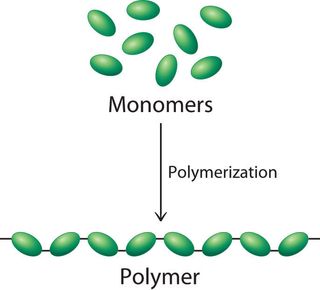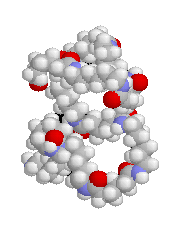Cutting-edge Polymers: Transforming Modern Manufacturing
Cutting-edge Polymers: Transforming Modern Manufacturing
Blog Article
Discovering the Varied Applications and Benefits of Polymers in Different Industries
Polymers, with their varied variety of buildings and functionalities, have ended up being indispensable in different sectors, each enjoying unique advantages from their application. From boosting security and performance in the automobile sector to changing medical tools in the healthcare industry, polymers play a crucial duty.
Automotive Field Applications
Polymers play a critical role in enhancing the efficiency and sturdiness of various components within the automobile market. These functional products are extensively used in the production of various parts, ranging from indoor parts to under-the-hood applications. One famous use of polymers in the automobile industry is in the manufacturing of light-weight components. By changing conventional steel get rid of polymer-based choices, vehicles can achieve better fuel performance without compromising on strength or safety.

Medical Care Sector Benefits
In different healthcare applications, the benefits of utilizing polymers are extensively acknowledged for their diverse variety of beneficial properties. Polymers play a vital function in the medical care sector because of their adaptability, biocompatibility, and cost-effectiveness. Among the primary advantages of polymers in medical care is their ability to be customized to particular demands, such as versatility, sturdiness, and biodegradability, making them suitable for a vast array of medical applications.
Polymer-based materials are extensively utilized in clinical tools, such as catheters, implants, prosthetics, and medicine delivery systems, because of their biocompatibility and ability to imitate all-natural cells. These materials can lower the risk of sensitive responses or rejections, improving individual safety and outcomes. In addition, polymers are lightweight, making them suitable for wearable clinical devices and making certain patient convenience.
Moreover, polymers enable the development of innovative treatment approaches, such as hydrogels for cells engineering and nanocomposites for targeted medication shipment. Their convenience of processing and sterilization makes them vital for preserving high criteria of hygiene in health care settings. Overall, the varied benefits of polymers contribute considerably to developments in medical modern technology and client care.
Ecological Benefits of Polymers

Additionally, polymers can contribute to power savings due to their lightweight nature. In markets such as transport, light-weight polymer products can help in reducing fuel consumption and greenhouse gas emissions. In addition, polymers can enable the growth of energy-efficient items such as insulation materials that boost power preservation in structures.
Moreover, polymers play a critical duty in reducing water air pollution. The usage of polymer-based purification systems can successfully eliminate contaminants and contaminants from wastewater, securing water resources and ecosystems. In general, the ecological advantages of polymers make them useful possessions in promoting sustainability and environmentally friendly techniques across various industries.
Polymers in Electronic Devices and Innovation
Thinking about the raising need for ingenious and sustainable solutions in modern-day markets, the integration of innovative polymer innovations in the realm of electronics and modern technology has become an essential technique for driving efficiency and performance. Polymers have actually reinvented the electronics sector by allowing the manufacturing of lighter, much more adaptable, and resilient digital devices. From smart devices to medical tools, polymers play a vital role in enhancing item style and capability.
One considerable benefit of polymers in like it electronics is their protecting residential properties, which assist protect fragile digital components from ecological factors and electrical disturbance. Furthermore, polymers are essential in the growth of flexible screens, wearable modern technology, and printed electronics, using unlimited opportunities for creating wise and interconnected tools.
Furthermore, the use of polymers in digital product packaging has resulted in improvements in miniaturization and thermal monitoring, improving the overall performance and reliability of digital systems. As technology proceeds to progress, the flexibility and adaptability of polymers will undoubtedly drive additionally advancement in the electronics sector, shaping the future of technology.
Duty of Polymers in Construction and Framework
Polymers use many benefits in the building sector due to their flexibility, sturdiness, and cost-effectiveness. One vital function of polymers in building is their use in layers and sealers, offering protection versus environmental factors such as dampness, UV radiation, and rust.
Moreover, polymers play an essential duty in sustainable construction techniques by allowing the growth of energy-efficient structures. Insulating check my source materials made from polymers aid regulate indoor temperatures, reducing the demand for home heating and cooling systems and inevitably lowering power intake. In addition, using polymer-based composites in framework jobs such as bridges and roadways enhances their durability and lowers maintenance costs. Generally, the incorporation of polymers in building and construction and framework displays their significant influence on modern-day engineering practices.
Verdict
In conclusion, polymers play a vital function in numerous sectors such as automotive, healthcare, environmental, electronics, and construction. Their versatile properties make them beneficial in developing ingenious services and items. From enhancing gas performance in vehicles to improving clinical tools, polymers offer various benefits. Additionally, their effect on decreasing waste and advertising sustainability highlights their value in modern-day applications. The widespread use polymers shows their substantial payment to advancing modern technology and improving lifestyle.
Report this page